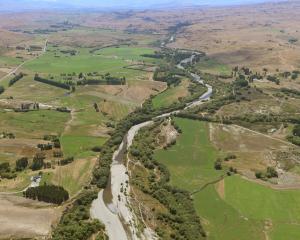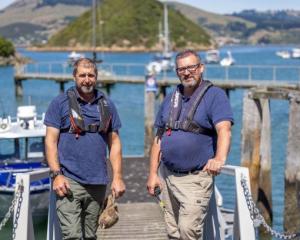The Otago Regional Council wants to avoid a ''crisis'' and is urging mining rights holders for water to act well before their permits expire in 2021.
''These sorts of discussions take years. They can't wait until 2019,'' council chairman Stephen Woodhead said at a recent meeting.
''People need to act sooner rather than later, so we don't come to a crisis point when those permits cease.''
The old mining right system meant holders could take water without consideration for river flows but after 2021 Resource Management Act consents would be needed to take water, with consideration for minimum flows.
Councillors suggested staff needed to correlate information on deemed permits with community water management programmes to see where the gaps were and publicise the forthcoming change more.
The programmes developed under the council's plan change ''1C'' encouraged co-operation and collaboration between water users and helped support communities and farmers who were trying to align their water permits in that way.
Catchment programmes were running in Manuherikia, Upper Taieri, Lindis, Bannockburn, Cardrona, Earnscleugh, Wanaka Plains and Lowburn.
Environmental information and science director John Threlfall said changing of mining permits (also known as deemed permits) to water permits provided an opportunity to reduce threats to values in Otago.
Catchment programmes continued to be an effective way of working alongside community members to achieve community management of water, especially in Central Otago, he said.
While irrigators knew what was expected of them, the same could not be said for the renewal of mining permits and community water management options, Dr Threlfall said.
''Work is increasing in the area of informing permit holders about the degree of information required for consent renewal and what the resulting conditions on consent could mean for their farming practice and communities.''
After 2021, the ability to take an entire river, despite minimum flows being in place, would disappear and volumes would be allocated based on how much was in the river.
Council's land resources officers were increasingly helping discussions through early involvement of all affected parties.
''The amount of knowledge and information which will need to be gathered in the short time before 2021 is quite large.''
Cr Gretchen Robertson said having strong community leadership through these changes was extremely valuable.
Cr Louise Croot said she hoped these projects would also be looking at the ''broader perspective'' of providing water for people, stock and firefighting.












